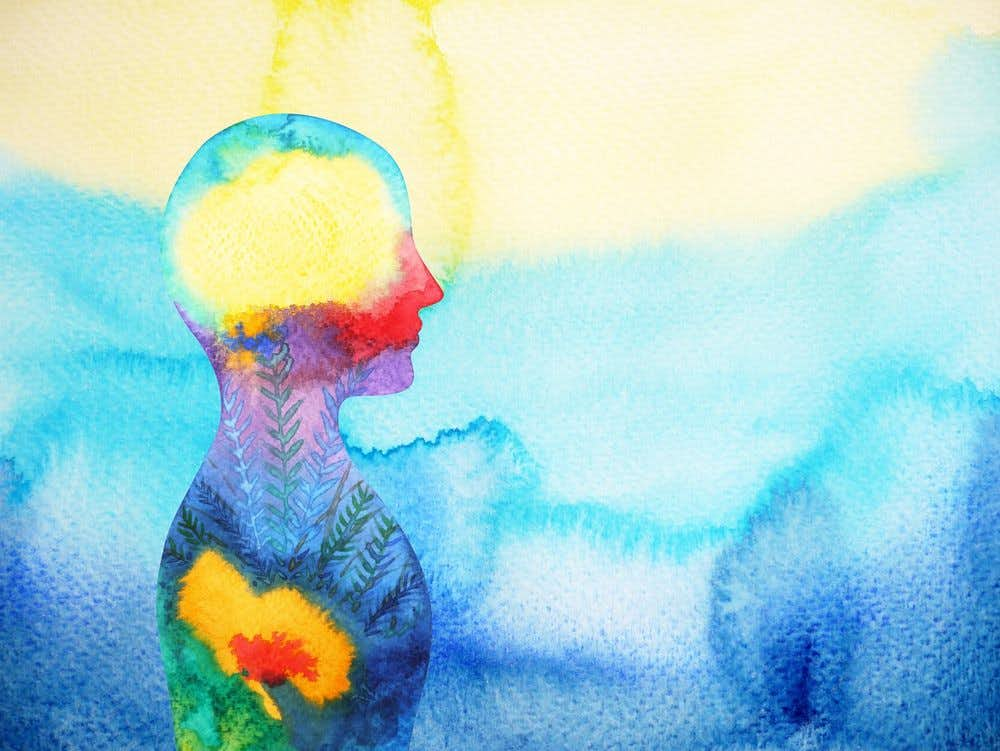June 15th, 2020

“Your illness does not define you. Your strength and courage does.” - Unknown

You may have heard of the buzzwords “mental health” and “mental illness” as these words or phrases have become increasingly popular to use in society. For example, the media – whether it be television, radio, or other news outlets often discuss mental health or mental illness as it pertains to society as a whole or about a particular individual. It is important to understand that while these terms have similarities between the two of them, there are differences between mental health and mental illness as well.
Let’s discuss mental health and what mental health is in a global sense…
Mental health refers to an individual’s psychological status and well-being. It involves how a person is feeling – both their mental and emotional standing. Mental health can fluctuate from day to day and, in some cases, from moment to moment.
An individual can be in a healthy place psychologically and an event can cause their psychological status to shift and change in a matter of mere moments. Therefore, it is important to be vigilant of how one is feeling – physically, mentally, psychologically, and even spiritually and to notice shifts in one’s feelings.
One’s mental health is crucial to functioning and is positively correlated with performance and productivity. The better one’s mental health, the better one will generally perform in various aspects of their life. It is difficult to have issues with one’s mental health and be able to perform at a high level – no matter what the task that one is trying to accomplish. This is not to say that those who have low levels of mental health cannot perform, just that it will be more difficult to perform at peak levels and harder to sustain a level of performance over a lengthy period of time.

Now that we understand what mental health is (and how important mental health can be to one’s ability to live and perform), it is important to discuss measures that one can take to improve one’s mental health.
Finding things that one enjoys to do is a great way to start improving one’s mental health. Engaging in fun, positive activities can relieve stress and improve one’s mental health.
Another way to improve one’s mental health is through relaxation techniques. Often times (especially in today’s fast paced society) it is easy to get caught up in the hustle and bustle of life and forget to relax and relieve stress. Doing things like deep breathing, progressive muscle relaxation, and meditation can help relax the body and mind and sharpen one’s mental health.
Other things an individual can do to improve one’s mental health is to communicate with others and not keep things in. Letting out one’s emotions and feelings to those we trust can be therapeutic and relieving. If you do not have someone that you feel you can trust with personal, private information or feelings that you have than it is highly suggested to find a counselor that you can share these things with.
While mental health is a broad topic that involves many aspects of one’s psychological and emotional well-being, mental illness is more specific and involves areas of detriment.
Mental illness, like physical illness, is a condition or disorder that impacts one’s life in a variety of ways. And, much like physical illnesses, there are treatments for mental illnesses as well. Mental illnesses, unlike some physical illnesses, are often unseen and can be difficult to detect without a specialization in identifying and treating mental illnesses.
A mental illness is a disorder that impacts the way one thinks, feels, and acts – or any combination of the three. Examples of mental illness are depression, anxiety, substance abuse, posttraumatic stress disorder, and eating disorders (to name a few – although there are more mental illnesses than just these).
Improving a mental illness may look a bit different than improving one’s mental health, as a mental illness is more specific and targeted than the broad term of mental health.
Improving mental health can be viewed as more of a preventive measure, whereas improving a mental illness is more of a rehabilitative and restorative measure.

If one has a mental illness, the best course of action is to seek help from a professional. As previously mentioned, mental illnesses can be difficult to identify and can be difficult to treat. Those who have received the specific education and knowledge of mental illnesses are best equipped to treat mental illness. It is best to not try to handle mental illness by oneself.
Clearly, mental health and mental illness both have overlap that make them similar but also have differences as well. Mental health is more global and encompasses mental illness, whereas mental illness is a specific issue or sickness that impacts one’s mental health.
There are ways to improve both mental health and mental illness, although if one has a mental illness it is in one’s best interest to reach out for professional help and support to help resolve the illness and improve both the mental illness and mental health, in general.

Our Services
Virtual/Online CarePHP and IOPAdult PsychiatryChild & Adolescent PsychiatryAdult TherapyChild & Adolescent TherapyCouples CounselingFamily TherapyGroup TherapyPsychological TestingTranscranial Magnetic Stimulation (TMS)Resources
Refer a PatientCareersClinical Training OpportunitiesOur ProvidersFree Mental Health TestsCommonly Prescribed MedicationsLocationsBlogIn The NewsClarity Through CharityClarity for AllQuick Links
Patient PortalFAQsAccepted InsurancesContact us